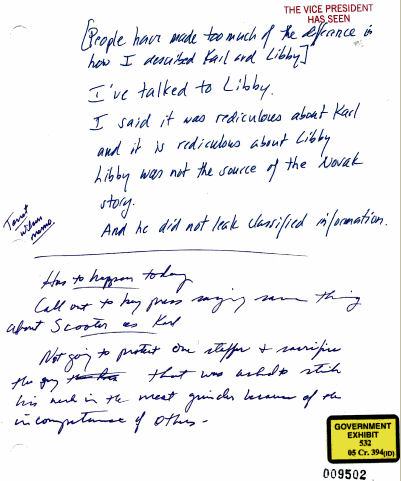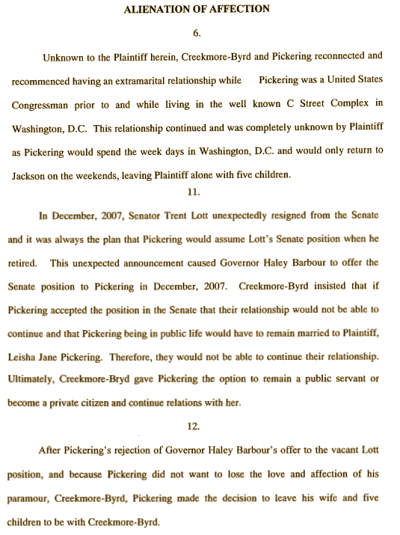Posted on Sunday 19 July 2009
I have struggled with how best to convey my regret in letting so many down, and in that regard I realize this column does not do justice to the process of saying “I am sorry.” A hand-written note or phone call would ultimately be more appropriate, but given the number of people I need to apologize to, I write this to begin the journey of trying to get things more right with you and others.
It is true that I did wrong and failed at the largest of levels, but equally true is the fact that God can make good of our respective wrongs in life. In this vein, while none of us has the chance to attend our own funeral, in many ways I feel like I was at my own in the past weeks, and surprisingly I am thankful for the perspective it has afforded…
• One, forgiveness and grace really do matter. I used to believe that at an intellectual level; now it is at the level of heart… It’s always the people closest to us whom we hurt the most, and given my standing of public trust, I know I’ve hurt many across our state. I apologize for this, and more than anything would ask for your forgiveness going forward.
• Two, life is indeed about way more than public standing or political views; it’s about recognizing that none of us is the arbiter of truth, that there are moral absolutes and that there is a God to whom we will all report for our actions. My failure has been most glaring on this front, where no public apology can make wrong right. As a consequence, it is on this plane that I’ve grown the most over the past weeks — and where I’m committed to growing the most going forward.
I’ve been humbled and broken as never before in my life, and as a consequence have given up areas of control in a way that I never have before. And it is my belief that this will make me a better father, husband, friend and advocate. It’s in the spirit of making good from bad that I am committing to you and the larger family of South Carolinians to use this experience both to trust God in his larger work of changing me and, from my end, to work to becoming a better and more effective leader…
• Finally it is at your funeral that you in many ways not only can see most clearly the things that really matter in life, but also get the best glimpse of who your real friends are — and how much they matter. For that reason, I want to thank so many for their kindnesses and support over the years and for their kindness in this latest chapter in our book together as South Carolinians.
| Jailhouse Conversion |
| A sudden shift in belief systems (usually finding Jesus, but also Allah and probably every other Deity) after a period of incarceration. Usually a ploy for leniency with the legal system. Oddly, given the separation of church and state that we’re supposed to have in this country, it does sometimes seem to have a positive effect when going to talk to the judge/parole board. Everyone from your local meth dealer to Manuel Noriega, Dictator of Panama have tried this one, making it one of the truly "oldest ones in the book". |
I know the definition doesn’t quite fit, but you get my drift. Confrontations by his wife, his C Street pals, and therapists didn’t work. But getting caught red-handed did work, or so he says. His amazing Press Conference was followed by and even more amazing interview in which he professed undying love and soul-mate status with his Argentine girlfriend, then said that he was going to try to fall back in love with his wife [gasps were heard throughout the Americas]. As he pointed out, King David survived the scandal of impregnating a colleague’s wife, having him killed, then marrying her and living happily ever after as his paradigm. Now he claims to be having a growth spurt and has discovered that forgiveness really does matter [particular when he’s the one needing to be forgiven].
But mostly, as an exercise, I’d suggest that you read this "guest editorial" over several times. At the end of each reading, try to tell yourself what he is saying. I finally gave up – it’s just a blank. Well, maybe it’s in this, "It’s in the spirit of making good from bad that I am committing to you and the larger family of South Carolinians to use this experience both to trust God in his larger work of changing me and, from my end, to work to becoming a better and more effective leader…" Maybe he’s still in the C Street mindset of being one of the chosen ones, and this is some episode in the future Book of Sanford – some sort of Phoenix rising from the ashes deal in the next New Testament. His comment at the end is over the top, "in this latest chapter in our book together as South Carolinians." His galloping off to Argentina wasn’t just something personal, it was a chapter in the shared book of South Carolinians – really into his biblical metaphor [King David = Israel, Gov. Sanford = South Carolina].
Like I said, embarassing…
-
So after reading the majority of responses to this article, it is safe to say that the general consensus is: APOLOGY REJECTED. Can this man never just shoot it to ya straight? All the metaphors, similes, ‘over the river and through the woods’ examples, are overkill and seem extremely haughty/insincere. Whatever happened to good ol’ "Look, I messed up,and I’m sorry…". No one wants to read about your metaphorical funeral, governor.
-
Yesssssssss !!
Here Comes The GAWD Defense !
Love It !
GOD IS MY . . .
1. Excuse
2. Alibi
3. Reason for not accepting responsibility
4. Scapegoat
5. Security blanket
6. Wife’s attorney -
does anyone notice that for a governor so willing to babble, he is absolutely tightlipped about wherther he has broken up with his mistress? How can we make sure he wont run away again? What exactly is he apologising for here?
-
What kind of wordy rambling nonsense is this? That "trip" Mark and Jen took last week was a smoke screen… I wish someone would just come out and be honest to the citizens of SC. What the hell is going on? Is the guv on medication now?


 At a Drew University forum, Cronkite said he feared the war would not go smoothly, ripped the “arrogance” of Bush and his administration and wondered whether the new U.S. doctrine of “pre-emptive war” might lead to unintended, dire consequences.
At a Drew University forum, Cronkite said he feared the war would not go smoothly, ripped the “arrogance” of Bush and his administration and wondered whether the new U.S. doctrine of “pre-emptive war” might lead to unintended, dire consequences.


 First, South Carolina’s Governor disappears, turning out to be having an affair in Argentina while the first lady summers on Sullivan’s Island with his four sons. And he turns out to be connected to an obscure secretive Christian something-or-another called C Street in Washington – as was a philandering N
First, South Carolina’s Governor disappears, turning out to be having an affair in Argentina while the first lady summers on Sullivan’s Island with his four sons. And he turns out to be connected to an obscure secretive Christian something-or-another called C Street in Washington – as was a philandering N evada Senator recently outed for his own affair with his best friend’s wife. Now, only weeks later, a recently retired young up-and-coming Congressman from Mississippi, Chip Pickering, former resident at C Street himself, has turned down a Senate appointment and divorced his wife [five sons] to be with his long time lover and college girlfriend [recently divorced from her Psychiatrist husband]. Pickering’s wife is now suing his new [old] flame for alienation of affections.
evada Senator recently outed for his own affair with his best friend’s wife. Now, only weeks later, a recently retired young up-and-coming Congressman from Mississippi, Chip Pickering, former resident at C Street himself, has turned down a Senate appointment and divorced his wife [five sons] to be with his long time lover and college girlfriend [recently divorced from her Psychiatrist husband]. Pickering’s wife is now suing his new [old] flame for alienation of affections.
 The 45-year-old Republican is now a lobbyist in Washington for Cellular South, the company Creekmore-Byrd’s family owns and which contributed to his congressional campaigns. The lawsuit says Creekmore-Byrd is on the board of directors of her family businesses.
The 45-year-old Republican is now a lobbyist in Washington for Cellular South, the company Creekmore-Byrd’s family owns and which contributed to his congressional campaigns. The lawsuit says Creekmore-Byrd is on the board of directors of her family businesses. which would be nice.
which would be nice.

 John Yoo’s editorial in the Wall Street Journal this morning explains to us why the F.I.S.A. Law was a problem for President Bush after 9/11, and explains the rationale for President Bush’s policy in some detail. Even Yoo’s op-ed title points out his importance in setting out the policy the President chose to follow [in secret]: Why We Endorsed Warrantless Wiretaps.
John Yoo’s editorial in the Wall Street Journal this morning explains to us why the F.I.S.A. Law was a problem for President Bush after 9/11, and explains the rationale for President Bush’s policy in some detail. Even Yoo’s op-ed title points out his importance in setting out the policy the President chose to follow [in secret]: Why We Endorsed Warrantless Wiretaps. So, like John Yoo’s previous op-ed writings, he explains the rationale for Bush’s decisions, policy decisions, from his perspective as a former Assistant Attorney in the Office of Legal Counsel. His arguments are always defenses of Bush’s actions [based on his memos]. They are hardly the arguments of a Lawyer interpreting the Law or giving Legal advice. He seems like a reasonably smart guy, so surely it occurs to him that he’s operating way outside the charge of the Department of Justice – upholding the Law. The very form of his op-ed title [We] and his policy arguments make it clear that he didn’t understand his job description and should have been dismissed, or maybe moved into the White House as a Policy maker. Perhaps he didn’t read his job description on the DoJ site.
So, like John Yoo’s previous op-ed writings, he explains the rationale for Bush’s decisions, policy decisions, from his perspective as a former Assistant Attorney in the Office of Legal Counsel. His arguments are always defenses of Bush’s actions [based on his memos]. They are hardly the arguments of a Lawyer interpreting the Law or giving Legal advice. He seems like a reasonably smart guy, so surely it occurs to him that he’s operating way outside the charge of the Department of Justice – upholding the Law. The very form of his op-ed title [We] and his policy arguments make it clear that he didn’t understand his job description and should have been dismissed, or maybe moved into the White House as a Policy maker. Perhaps he didn’t read his job description on the DoJ site.